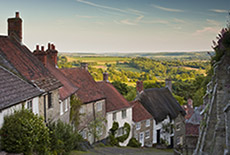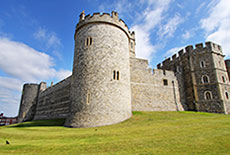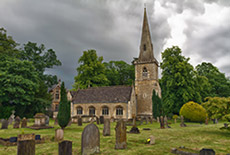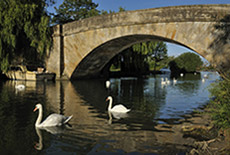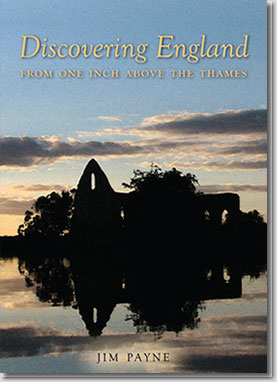Excerpt from Discovering England
"How did such a funny country come into being?"
Preface
My first connection with England came through Gilbert and Sullivan. At the age of four, I listened for hours to songs from their operettas, playing 78 RPM records on an old electric Victrola. I could never seem to get enough of their bouncy rhythms and zany lyrics, and wound up memorizing for life many of their most famous numbers. Even at that tender age, I marveled at their irreverent, ironic tone. A modern major general who knows as much about gunnery as a novice in a nunnery! An office boy who polished the handle of the big front door so carefully that now he is the ruler of the Queen’s navy!
Today, aware of the stuffy 19th century era in which they wrote, I am more amazed at their impudence. Remember, they were spoofing generals and admirals in the heyday of the British Empire. In another country, Gilbert and Sullivan would have been put in jail, or at least shunned for making light of the majesty of the state and its officials. But not in England. The operettas were immensely popular, and the generals and admirals laughed along with everyone else.
How did such a funny country come into being, a nation that considers laughing at itself a protected national pastime? The answer, I think, lies in the multitude of inconsistencies that abound. When nations were made, God sprinkled the available traits and virtues here and there. When it came to England, He changed His approach and scattered tiny seeds of contradiction which settled deeply into the soil. At first nothing seemed amiss. The Saxons didn’t notice anything, and I don’t think the Romans did either. But after a time, these inconsistencies began to sprout, here and there, like dandelions in your lawn, more and more, until there was nothing anyone could do about them. Thus did the English surrender to irony.
Here’s a tiny example of what I’m talking about. In London’s Trafalgar Square stands a proud statue of Charles I. At the other end of the street connecting the Square to the Houses of Parliament is a proud statue of Oliver Cromwell, the man who executed Charles I. People of logical lands would exclaim, “Hey wait a minute. They both can’t be considered right and venerated!” The English, long ago overwhelmed by the dandelions, merely smile. One wit, his tongue deeply in his cheek, said the contradiction was “an example of our attempts to be fair to everybody.”
Many writers have travelled across England trying to get to the bottom of this awkwardly original country, using many means of locomotion. They have walked across its length, and walked across its breadth. They have taken branch railways to the end of the line. And of course they have used their cars—when they could find a place to park. Through all these methods a great deal of progress has been made unraveling England’s mysteries.
Yet there is another means of transportation waiting to be tried, a device so alien as to be a kind of English joke itself: the kayak, a wood and canvas contraption invented by the Aleutian Indians. In this vessel, we can literally get to the bottom of England, suspending ourselves at water level, to direct our gaze upward at monuments, people, and culture. Perhaps in this slender, silent craft we shall be able to sneak up on some new discoveries in this most delightfully puzzling land.

